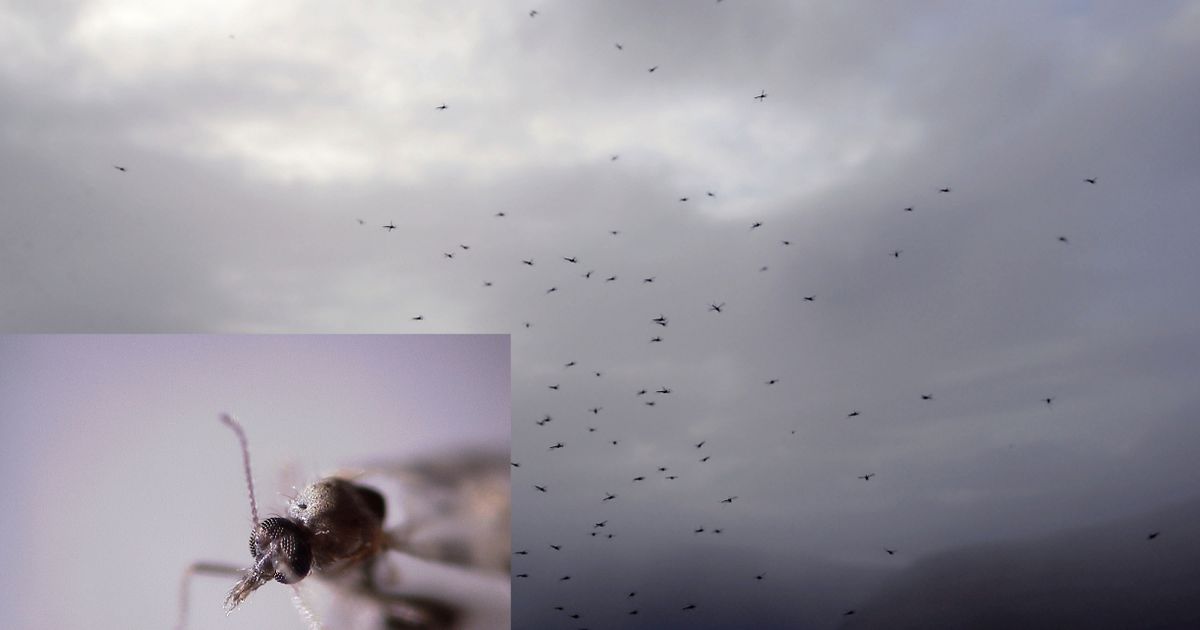
Blandford fly warning issued over tiny bloodsucking flies that make you ill.
The NHS claims the UK should brace themselves for a surge of Blandford flies over the next few weeks.
Blandford flies hover fairly low at ground level, therefore targeting leg and ankles with their venomous bite. A bite can result in a nasty, swollen blister, as well as a fever and swelling to the groin.
These pests are only about 2-3mm big, and tend to be more prominent near water such as lakes, ponds and rivers. Experts are urging Brits to take extra caution over the coming months, and identify a potential bite sooner rather than later.
Karen Wright, director of Public Health for Herefordshire, explained that the warmer the weather, the more likely the Blandford fly will strike.
She said: “We encourage people to take precautions if they’re out and about on rivers and streams, especially over the forthcoming bank holiday weekend.
“If you do get bitten, it can often feel very uncomfortable with swelling, blistering, joint pain and sometimes high temperature.”
Karen added that generally there will be no need to visit the GP, unless symptoms worsen.
“If you do feel unwell after a bite, please call NHS 111 or visit your local pharmacy for advice on how to ease your discomfort,” she explained.
“For the majority of people, the symptoms will only last a few days before clearing up.”
According to Somerset Live, if you do get bitten, you should gently clean and dry the bite area, whilst trying not to scratch it, as this could lead to infection.
A cold compress or calamine lotion will help reduce inflammation and pain. Larger blisters should be covered with a dry dressing, and any swollen joints should be raised and rested for a dew days.
Antihistamine cream is not advised as this is likely to cause a skin reaction.
Medical help should be sought if you get pain in other areas away from the bite, a fever, or the above symptoms do not better after three days.













